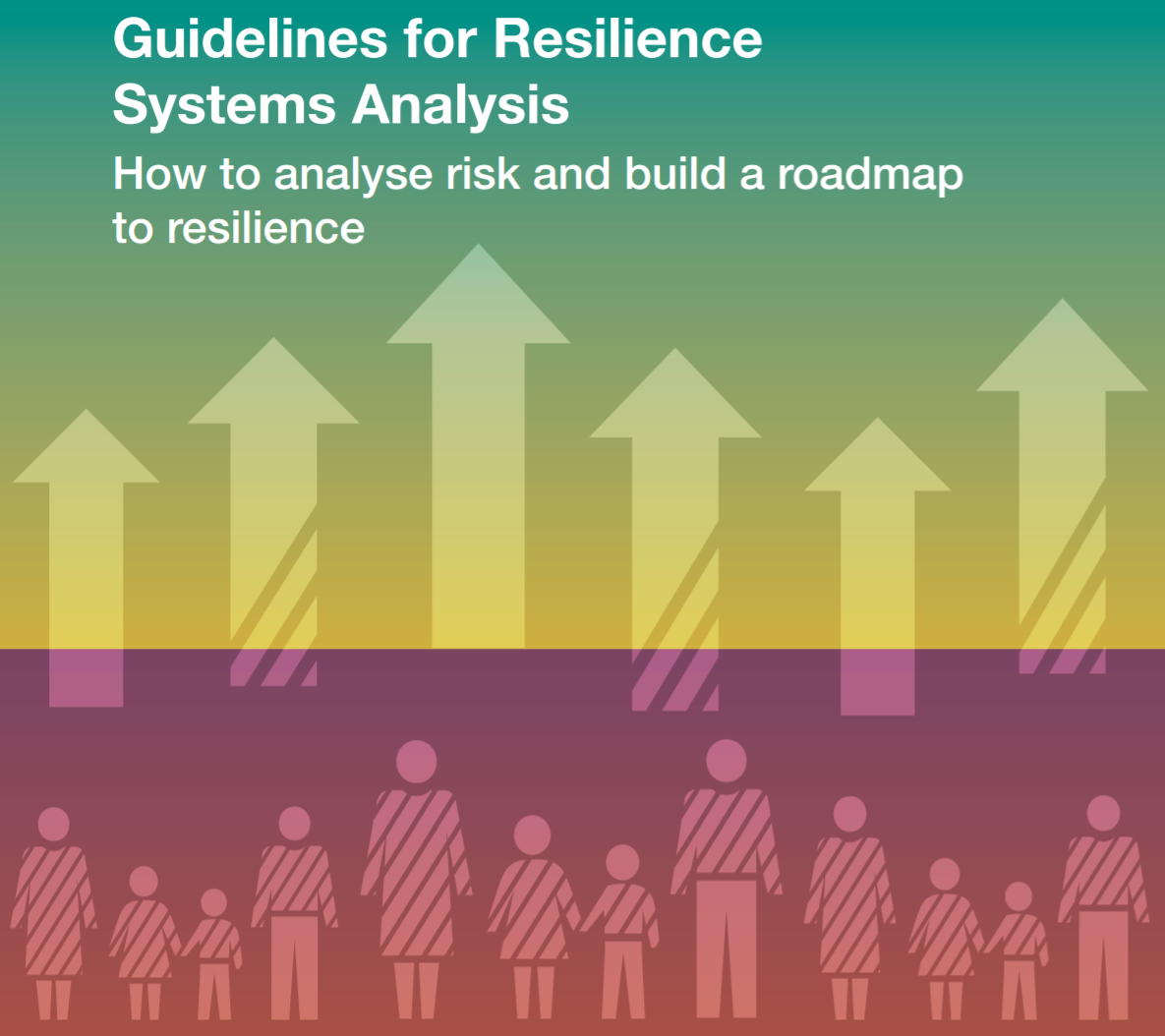Guidelines for Resilience Systems Analysis

This guide was developed by members of the OECD Development Assistance Committee and Experts Group on Resilience as a simple “how to” guide to allow people in the field to analyse what is needed to boost the resilience of specific groups, specific systems, and specific programmes, to the risks people face every day.
The guidance is aimed at professionals who are grappling with what resilience actually means, and how to get key stakeholders to develop a shared vision of both the risks that exist in their particular context, and what to do about them; both now, and in the longer term.
Source: OECD, 2014
Guidelines for Resilience Systems Analysis How to analyse risk and build a roadmap to resilience
https://www.oecd.org/dac/Resilience%20Systems%20Analysis%20FINAL.pdf
